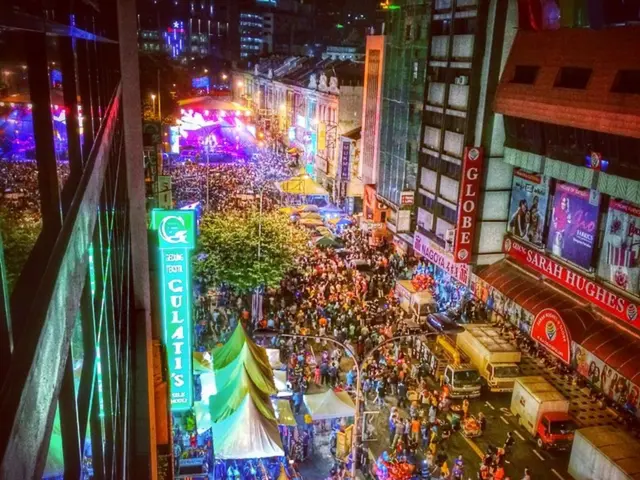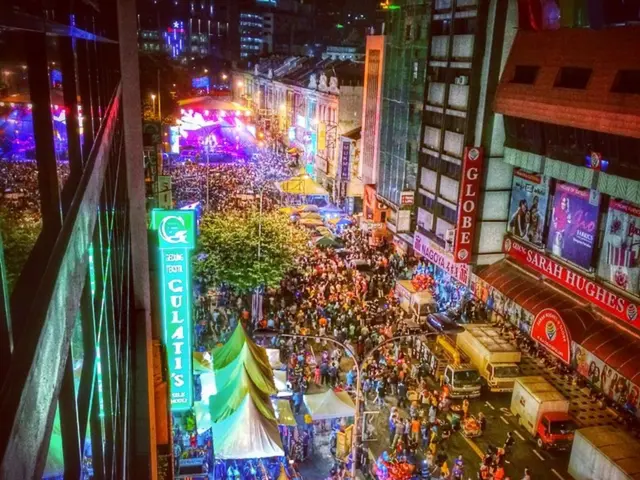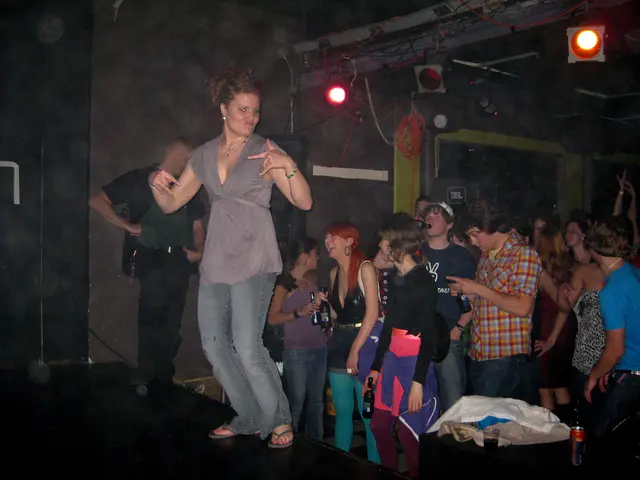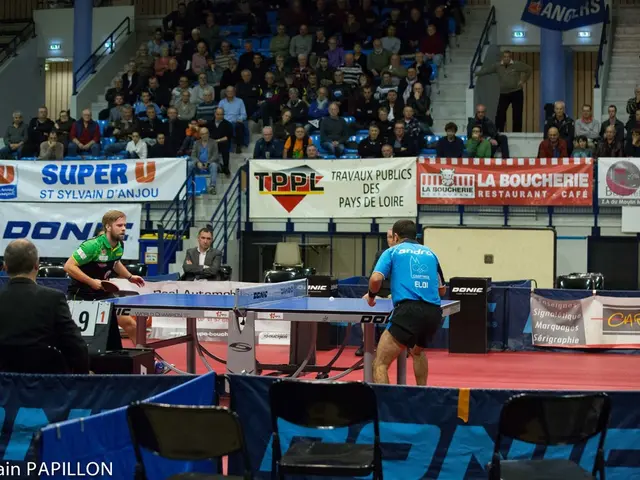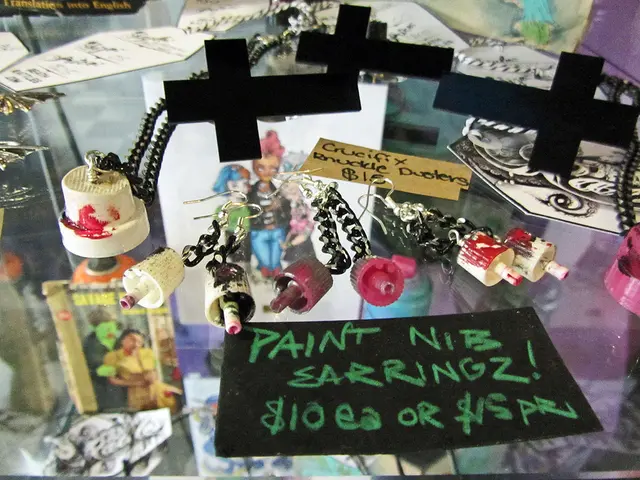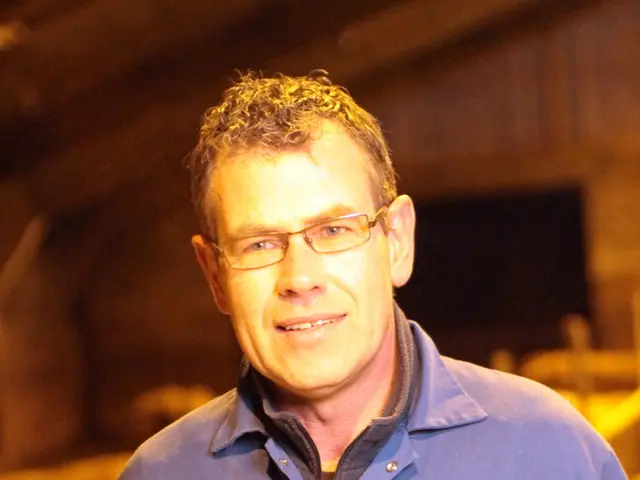Living Behind Bars: Roberto Saviano's Torturous Existence Under Constant Threat
Roberto Saviano resides under constant surveillance, ensconced in a protected environment due to threatening mafia connections.
By Andrea Affaticati, Milan
Insights - The long-term consequences of living under constant police protection can significantly affect a person's life, mental health, and relationships. This is evident in the case of Roberto Saviano, an Italian writer and journalist.
Roberto Saviano, a native Neapolitan and now 44 years old, has been under police protection for two decades. He gained international acclaim in 2006 with his expository book "Gomorrah," which documented the structure and activities of the Camorra, the Neapolitan mafia. As a result, he found himself in the crosshairs of the Camorra, with stern warnings from Camorra boss Francesco Bidognetti that he would be dead within five years.
The Cage of Protection
"Yes, I've sometimes wondered if I haven't made a mistake," Saviano confesses in an interview with the Italian daily "Corriere della Sera." Living under the watch of the police isn't exactly a walk in the park. Only those who have experienced it can truly understand its demands.
A Guilty Conscience
Saviano talks about the guilt he feels towards his family. He shares a poignant anecdote about his aunt's funeral, who meant a lot to him. "In fact, it wasn't even a funeral. There was no one at the cemetery. My parents once lived in Caserta (near Naples, note of the ed.). They had to move to northern Italy as early as 2006. All because of me. But they never settled there."
Real Danger or Drama Queen?
Besides the Camorristi who wish him dead, there are also normal Neapolitans who cannot forgive Saviano for the image he painted of Naples with "Gomorrah." They overlook the positive changes his book brought about, like making some Neapolitan neighborhoods safer.
The author is often labeled as an intellectual co-opted by politics. Both leftists and right-wingers are divided over him. Matteo Salvini, the Deputy Prime Minister, would love nothing more than to withdraw his police protection. Saviano is also questioned about why he has needed protection for decades without any incidents thus far.
Rushdie's Resilience
In the interview, Saviano compares himself to Salman Rushdie, an Indian-British writer who faced a fatwa after the release of his book "The Satanic Verses" in 1988. For years, Rushdie lived in hiding under police protection.
At some point, Rushdie defied the danger and resumed living freely. It went well for a while until the summer of 2022, when he was seriously injured in a stabbing attack and lost an eye. "The irony is that Rushdie now feels relieved," Saviano points out. "No one can claim the fatwa is just a stunt anymore."
Constant Panic and Loneliness
Living under constant protection means two things for Saviano: "On the one hand, being criticized for exaggerating the danger and seeking attention. On the other hand, constantly questioning how to break free from this captivity."
When asked if he suffers from panic attacks, Saviano admits, "Constantly. I couldn't handle it without medication. Five o'clock in the morning is the worst time of the day. You can't breathe. You ask yourself: 'And now? Where do I go?' I am crushed by two burdens. One, because I'm risking my life, the other, because I'm still alive."
Saviano also shares his struggles with loneliness. He talks about the last Easter holidays. Relatives and friends kept him company until 7 p.m. Then they left and were out in Naples until 4 a.m. "I'm happy for them," Saviano says. "But I had to stay at home."
Both friendships and romantic relationships are affected by his limited mobility. "Especially when it comes to love," he laments. "If I like someone and they like me, the relationship is doomed from the start." Love demands freedom, and he doesn't have that.
Saviano also reveals an anecdote about envy from another prominent writer: "I once took a selfie with Philip Roth and he said to me: 'I'd never be jealous of a shitty life like yours.'" Saviano understands that, but he has often wondered if things could have been different. He hasn't found the answer yet. And he continues to torment himself.
- Roberto Saviano's ongoing need for employment policy, specifically police protection, due to threats on his life, has affected his lifestyle, limiting his freedom and causing constant panic.
- In the realm of pop-culture, Saviano finds a parallel in Salman Rushdie's struggles, both facing constant threat and living under protection, only for Rushdie to experience a resurgence of danger years later.
- As Saviano reflects on his life under constant police protection, he grapples with feelings of guilt toward his family, especially as his limited mobility restricts the formation of new relationships, including those of a romantic nature, and leaves him feeling lonely, even during holidays.

